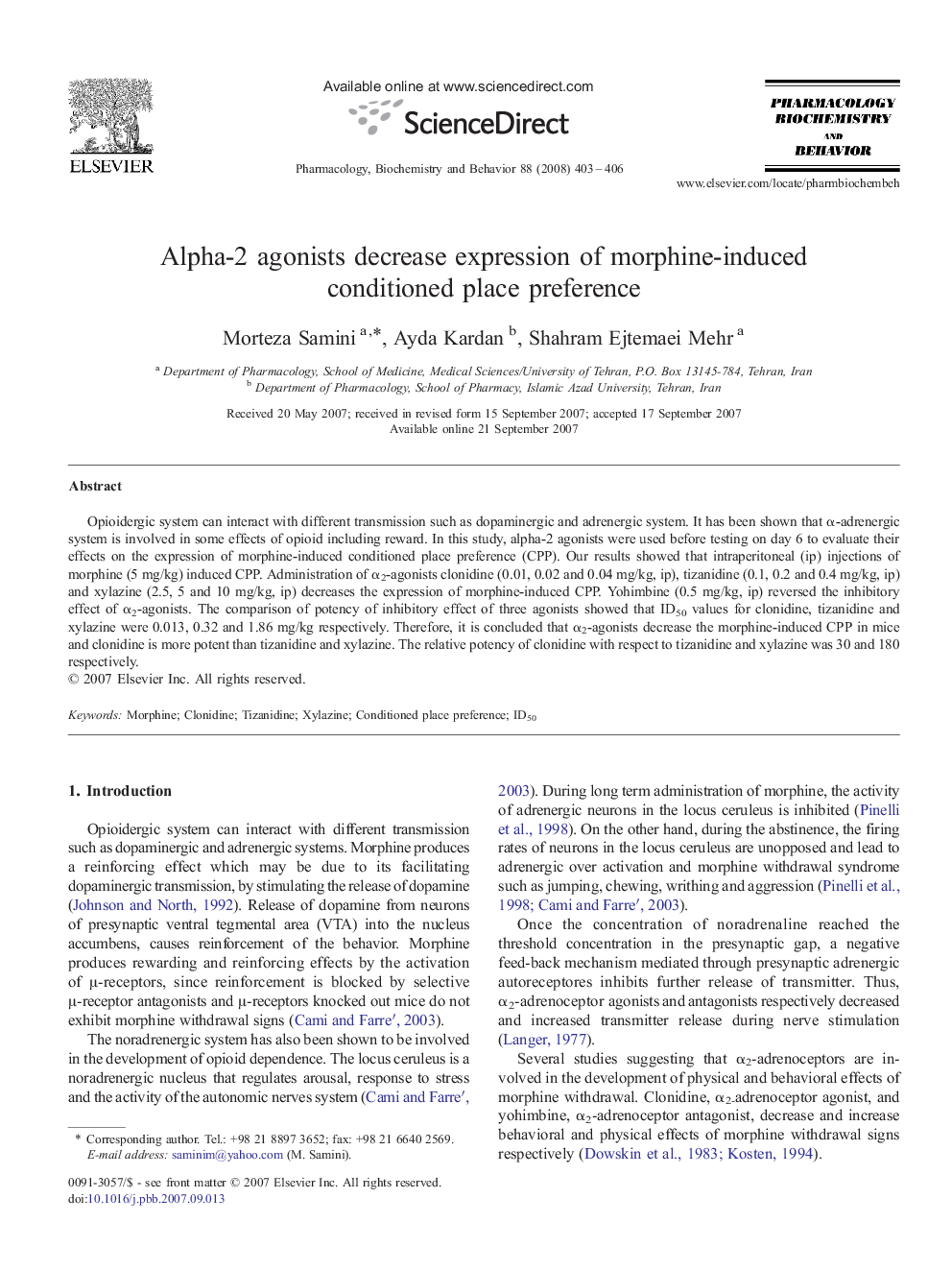| Article ID | Journal | Published Year | Pages | File Type |
|---|---|---|---|---|
| 2013996 | Pharmacology Biochemistry and Behavior | 2008 | 4 Pages |
Abstract
Opioidergic system can interact with different transmission such as dopaminergic and adrenergic system. It has been shown that α-adrenergic system is involved in some effects of opioid including reward. In this study, alpha-2 agonists were used before testing on day 6 to evaluate their effects on the expression of morphine-induced conditioned place preference (CPP). Our results showed that intraperitoneal (ip) injections of morphine (5 mg/kg) induced CPP. Administration of α2-agonists clonidine (0.01, 0.02 and 0.04 mg/kg, ip), tizanidine (0.1, 0.2 and 0.4 mg/kg, ip) and xylazine (2.5, 5 and 10 mg/kg, ip) decreases the expression of morphine-induced CPP. Yohimbine (0.5 mg/kg, ip) reversed the inhibitory effect of α2-agonists. The comparison of potency of inhibitory effect of three agonists showed that ID50 values for clonidine, tizanidine and xylazine were 0.013, 0.32 and 1.86 mg/kg respectively. Therefore, it is concluded that α2-agonists decrease the morphine-induced CPP in mice and clonidine is more potent than tizanidine and xylazine. The relative potency of clonidine with respect to tizanidine and xylazine was 30 and 180 respectively.
Related Topics
Life Sciences
Biochemistry, Genetics and Molecular Biology
Biochemistry
Authors
Morteza Samini, Ayda Kardan, Shahram Ejtemaei Mehr,
